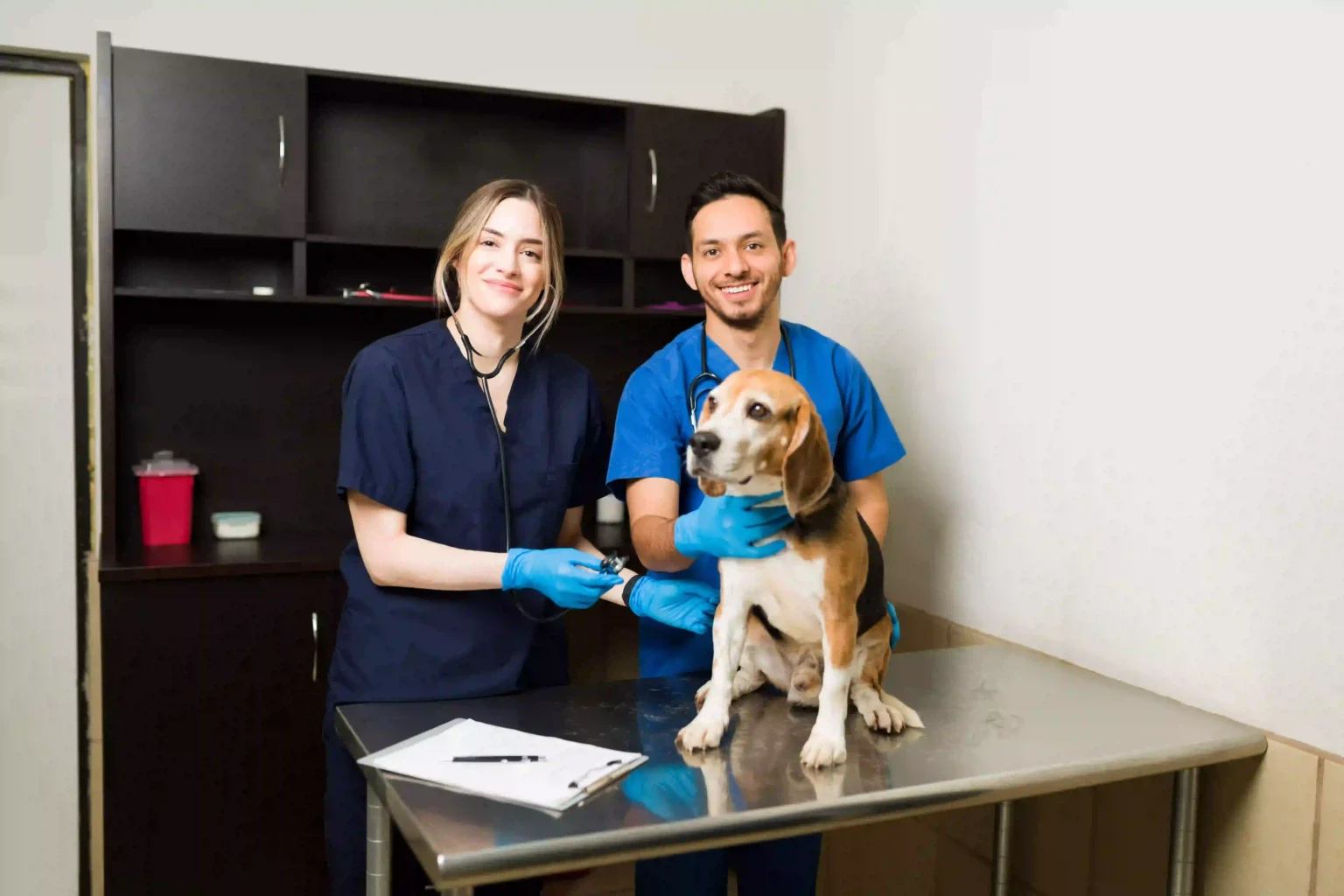As a responsible pet owner, recognizing warning signs that your dog might need medical attention is crucial. Regular vet check-ups are essential, but there are specific signals that should prompt immediate action. In this article, we’ll explore the 10 warning signs indicating it’s time to take your dog to the vet.
Changes in Eating Habits
When your canine companion suddenly loses interest in food or exhibits a noteworthy shift in eating behaviors, it may indicate an underlying health problem. Dogs are normally excited about their meals, so any variation from their usual eating habits should raise concerns. Seeking professional guidance from your veterinarian is critical in such cases to guarantee a thorough assessment of your dog’s health.

By speaking with your veterinarian, you can rule out any potential causes of your dog’s appetite loss and address any health concerns as soon as possible, improving your pet’s general well-being and ensuring a timely and appropriate course of action. Regular veterinary check-ups are essential for preserving your dog’s health and spotting potential health issues before they worsen.
Lethargy and Weakness
If you notice your dog’s unexplained lethargy or weakness, it could be a sign of a variety of health problems, ranging from infections to probable organ abnormalities. Dogs are normally active and vibrant, so any sudden drop in activity or signs of tiredness should cause alarm. Seeking quick veterinary attention is critical in such cases to conduct a comprehensive examination and determine the root cause of your dog’s lethargy.

Whether it’s an underlying illness or a potential organ issue, early detection and intervention are critical to your dog’s health. Regular check-ups with your veterinarian are essential for monitoring your dog’s health and addressing any emerging issues before they worsen, encouraging a proactive approach to your pet’s general wellbeing.
Difficulty in Breathing
Your dog’s labored breathing, prolonged coughing, or other indicators of respiratory distress require rapid attention. These symptoms may indicate underlying respiratory infections, probable cardiac problems, or other respiratory diseases that require immediate veterinary attention. The respiratory system is essential to your dog’s general health, and any disruption in its operation necessitates an immediate evaluation by an expert.
A early visit to the veterinarian will allow for a comprehensive examination to determine the underlying cause of these symptoms, allowing for timely and suitable treatment. Respiratory difficulties can quickly increase, so early intervention is critical to ensuring your dog receives the care he requires, supporting respiratory health and general well-being. Regular check-ups with your veterinarian can help monitor your dog’s respiratory health and detect any potential issues before they become severe.
Persistent Vomiting or Diarrhea
Changes in your dog’s digestion processes are a common occurrence, frequently caused by nutritional changes or moderate stomach discomfort. However, if your pet has continuous vomiting or diarrhea, it may indicate an underlying and potentially serious health problem. In such instances, it is critical to be watchful and seek competent veterinary assistance as soon as possible.
- Normal Digestive Variations: Occasional stomach upset, such as short-term changes in bowel movements, can be considered normal and might be caused by dietary adjustments or minor gastrointestinal disturbances.
- Signs of Concern: Persistent vomiting or diarrhea that extends beyond the usual variations warrants immediate attention. These symptoms may be indicative of more severe underlying issues that require thorough examination and diagnosis.
- Risks of Dehydration and Nutrient Loss: Prolonged gastrointestinal issues pose the risk of dehydration and nutrient loss in your dog. It’s essential to address these concerns promptly to prevent complications and maintain your pet’s overall health.
- Professional Veterinary Evaluation: Seeking the expertise of a veterinarian is imperative when faced with persistent digestive issues in your dog. A professional examination can help identify the root cause, allowing for appropriate treatment and preventing potential complications.
- Timely Intervention: Early diagnosis and intervention not only mitigate the risks associated with digestive problems but also contribute to your dog’s speedy recovery, ensuring they receive the necessary care to regain their digestive balance. Regular veterinary check-ups play a crucial role in monitoring your dog’s gastrointestinal health and catching any issues before they escalate.
Changes in Urination
Keep an eye on any changes in your dog’s urine patterns, as they may indicate underlying health issues. If you find your dog laboring to urinate, seeing blood in their urine, or changing the frequency of urination, these could be symptoms of a urinary tract infection or kidney disease.
Seeking the advice of a veterinarian is critical in such circumstances to guarantee a thorough evaluation and appropriate diagnosis. Untreated urinary system disorders can cause complications and discomfort for your pet. Addressing these signs early allows you to give appropriate care and management, enhancing your dog’s urinary health and general well-being. Regular veterinary check-ups help to monitor your dog’s urinary system and address any growing abnormalities early on.
Unexplained weight Loss
If your dog is losing weight without a clear explanation, it’s a red flag. Underlying issues such as parasites, thyroid problems, or diabetes could be at play. Your vet can conduct tests to identify and address the cause.
Sudden behavioral changes, such as increased aggression, anxiety, or depression, may indicate pain or discomfort. Professional evaluation can help determine the cause and provide appropriate treatment.
Any new, growing, or changing lumps or bumps on your dog’s body should be examined by a vet. Early detection of tumors or skin issues improves the chances of successful treatment.
Difficulty Standing or Walking
If you notice your dog having trouble standing, walking, or showing signs of lameness, it could be due to underlying joint problems, injury, or arthritis. These disorders can have a substantial influence on your pet’s mobility and general health. In such cases, consulting with a veterinarian is critical for precisely diagnosing the disease and recommending appropriate remedies.
A thorough examination by a veterinarian can assist pinpoint the source of the mobility issues, whether it is due to joint inflammation, injury, or another underlying condition. Once diagnosed, the veterinarian might provide specific recommendations for treatment and maintenance, such as pharmaceuticals, physical therapy, or lifestyle changes. Timely veterinary care is critical to addressing these difficulties, improving your dog’s mobility, and ensuring a higher quality of life.
Unpleasent Odors
Foul odors from the mouth, ears, or any part of your dog’s body may indicate infections or dental problems. Regular dental check-ups and addressing any unusual smells promptly are vital for your dog’s overall well-being.
Remember, your dog’s health is a priority. If you notice any of these warning signs, don’t hesitate to consult your veterinarian for proper diagnosis and treatment.
Crafting a Healthy Future for Your Dog:
Now that you’re aware of the warning signs indicating your dog might need veterinary attention, taking proactive steps becomes paramount. Here are additional tips to ensure your furry friend stays healthy:
Regular Exercise:
Maintain a consistent exercise routine to keep your dog physically active and mentally stimulated. Exercise contributes to overall well-being and helps prevent obesity-related health issues.
Balanced Nutrition:
Provide a well-balanced diet that meets your dog’s nutritional needs. Consult your vet for guidance on the appropriate food, portion sizes, and any dietary supplements your dog may require.
Routine Vet Check-ups:
Schedule regular check-ups with your veterinarian, even if your dog appears healthy. Preventive care can detect issues early, increasing the chances of successful treatment.
Dental Care:
Don’t overlook your dog’s oral health. Brush their teeth regularly and offer dental chews or toys to promote good dental hygiene and prevent potential infections.
Parasite Prevention:
Protect your dog from parasites like fleas, ticks, and worms. Use preventive measures recommended by your vet, and be vigilant for any signs of infestation.
Stress Management:
Be attentive to your dog’s emotional well-being. Minimize stressors, provide a comfortable living environment, and offer mental stimulation through toys and play.
Emergency Preparedness:
Know the location and contact information of the nearest emergency veterinary clinic. In case of unexpected health issues, quick access to professional care is vital.
By staying vigilant and proactive, you play a crucial role in ensuring your dog’s health and happiness. Remember, a well-cared-for dog is a happy companion for years to come.



Great tremendous things here. I am very glad to peer your post. Thank you so much and i’m looking forward to touch you. Will you kindly drop me a mail?